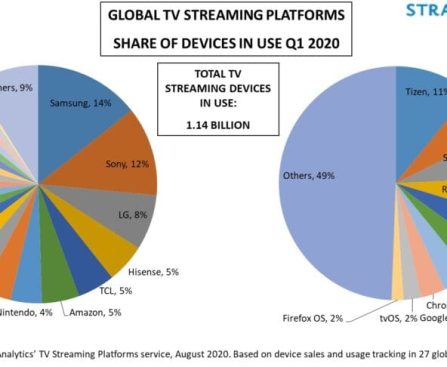Chinese hackers allegedly broke into the network of an Ivanti subsidiary in 2021. The hackers exploited a backdoor in its VPN product, which allowed the hackers to gain access to 119 other unnamed organizations.
Blog Posts
Blog Posts
Apple Sports Unveils NCAA Tournament Brackets and Significant Soccer Growth
Apple has recently refreshed its Apple Sports app to version 3.8, bringing forth several new features designed to enhance the experience for sports fans. The update concentrates on delivering thorough tracking for NCAA tournaments, broadening soccer coverage, and boosting support for leagues and teams across different areas.
One of the highlight features of this update is the live tracking of the Men’s and Women’s NCAA tournaments. Users can now monitor the advancement of their preferred teams with updated brackets that display matchups and results for every round. This feature enables fans to remain updated on every game, facilitating greater engagement with the tournaments.
In addition to the NCAA updates, Apple Sports has launched a new soccer category aimed at simplifying the process of locating and following favorite leagues and cups. This expansion incorporates several major leagues, including:
– Campeonato Brasileiro Série A
– Categoría Primera A
– Liga de Primera
– Liga Pro
– Liga Profesional de Futbol
– Primera División del Perú
These additions highlight Apple’s dedication to offering a more comprehensive sports tracking experience for soccer enthusiasts.
Moreover, the app is extending its scope by enabling the tracking of leagues and teams in Latin America and the Caribbean. This initiative is expected to attract a broader audience and enhance the app’s functionality for users in these territories.
Apple Sports is available for free on the App Store, making it accessible for iPhone users eager to stay updated with their preferred sports and teams. With these improvements, Apple continues to establish itself as a key player in the sports tracking app arena, catering to a varied spectrum of sports fans.
Apple TV Sets World Record with Groundbreaking Godzilla and Kong Drone Advertising Event
**Monarch: Legacy of Monsters Receives Significant Marketing Boost from Apple TV**
Apple TV’s eagerly awaited sci-fi series, *Monarch: Legacy of Monsters*, is poised to debut this week, and the streaming platform has initiated an impressive marketing initiative to draw in viewers. In a spectacular affair, Apple joined forces with Legendary to present a drone show featuring legendary monsters from the series, including Godzilla and Kong.
Last Friday in Los Angeles, the event highlighted a breathtaking display of 3,000 drones that ascended 500 feet into the sky, crafting a visual feast that reportedly established a new world record. The show attracted stars from the series, such as Kurt Russell and his son Wyatt Russell, adding to the event’s allure.
This marketing endeavor builds upon Apple TV’s past successful promotions, like the immersive campaign for *Severance* season 2, which introduced a Lumon work station at Grand Central Terminal in New York City. Nonetheless, the magnitude of the drone event for *Monarch: Legacy of Monsters* signifies a notable return to grand promotional strategies.
*Monarch: Legacy of Monsters* season 2 is set to debut on **February 27**, with one episode released initially, followed by weekly installments until May 1. Viewers can binge-watch season 1 of the series on Apple TV.
Apple TV is offered at **$12.99 per month**, with specials available through the Apple One bundle.
Interstellar by Christopher Nolan Precisely Predicted a Scientific Advancement
“Oppenheimer” (2023) might have secured Christopher Nolan a well-earned Oscar for Best Director, but “Interstellar” (2014) can be seen as an even more remarkable creation by Nolan, an ambitious science fiction film that remains anchored in real science while exploring one of humanity’s most fundamental emotions: love. The blend of impressive visuals, an enchanting score, and numerous unforeseen twists renders “Interstellar” an essential viewing experience, one that invites multiple rewatching after the first viewing. This could be attributed to the fact that “Interstellar” conveys a plausible narrative. The Earth is gradually perishing, and humanity’s hope for survival lies light-years away, in the proximity of Gargantua, a colossal black hole that serves as one of the film’s most breathtaking locations. It appears that Nolan’s representation of Gargantua was remarkably precise. A group of researchers succeeded in capturing the first image of a black hole in 2019, with the indistinct picture presenting a strikingly akin appearance.
Nolan worked with relativity specialist Kip Thorne, who played a key role in the production of “Interstellar.” The scientist provided guidance throughout the process, from scripting to editing, to guarantee that the audience would have a scientific experience that felt authentic. The Gargantua black hole stands out as one of the primary science fiction themes Nolan introduces in “Interstellar,” grounded in current scientific understanding. Some of that science is elucidated during the film, allowing the audience to easily comprehend ideas like time and gravity.
Time is a vital element propelling the narrative. The protagonist, Cooper, played by Matthew McConaughey, undertakes the space mission to rescue Earth, fully aware that he will lose years with his children — and potentially never come back. The events occurring close to the black hole, where time flows significantly slower than on Earth, ultimately shatter Cooper’s heart. The enormity of Gargantua appears unavoidable.
How did researchers manage to photograph a black hole?
The scientifically validated visual effects earned “Interstellar” an Oscar in 2015. However, while Nolan’s film led us to believe that black holes resembled the Gargantua design, we had no means to ascertain the accuracy of this portrayal. Gargantua appeared plausible, but it was still merely a concept created for cinematic purposes. It wasn’t until 2019 that the Event Horizon Telescope initiative produced the first indistinct image of the Messier 87 (M87) black hole, which was published by The New York Times. As shown in the clip above, the black hole does not precisely mirror the stunning Gargantua but does bear a striking resemblance. At its core, there exists a circle (sphere) devoid of light, representing the black hole. Surrounding the dark core is an orange circle, the accretion disk, composed of light and luminous gases.
M87 is a galaxy located in the Virgo constellation, approximately 55 million light-years from Earth. The black hole within it is several billion times more massive than the sun, as reported by The Times. It is also “emitting a violent jet of energy some 5,000 light-years into space.” This energy, along with the light and gas, facilitates the imaging process. The astronomers at the Harvard-Smithsonian Center utilized a telescope network equivalent to the size of Earth to capture the image. This is the Event Horizon Telescope, comprised of eight radio observatories situated on six mountains across four continents. The project began in April 2017, when the observatories monitored the target for ten days.
The Event Horizon team invested two years analyzing the collected data. The data was so substantial that scientists couldn’t transfer it over the internet. Instead, they transported hard drives back and forth to consolidate the information. Four independent teams then collaborated on the data to avoid bias.
A monumental discovery for mankind
“Interstellar” scientific consultant Kip Thorne received the Nobel Prize in 2017 for his discovery of gravitational waves resulting from colliding black holes. In 2019, The Times highlighted Thorne’s admiration for the black hole imagery. “It is wonderful to see the nearly circular shadow of the black hole,” the astrophysicist conveyed in an email to the publication. “There can be no doubt this really is a black hole at the center of M87, with no signs of deviations from general relativity.”
This initial image does not merely confirm Einstein’s theories about relativity and black holes. It also implies that Nolan made the correct decision to rely on scientific principles to portray the haunting Gargantua (as seen in the brief “Interstellar” clip above). More significantly, the image assists astronomers in advancing their research on black holes. According to The Times, scientists managed to ascertain the size of the black hole and estimate its mass at 6.5 billion solar masses, or considerably heavier than prior predictions.
While a sequel to “Interstellar” seems improbable, the Event Horizon team is likely to generate similar black hole images in the future. M87 was merely the beginning. A black hole at the
Contrasting Samsung Tizen with Google TV: 4 Benefits of Samsung’s System
the most dependable smart TV manufacturers available, with its smart TVs ranking among the top.
Nonetheless, one of Samsung’s primary rivals in this arena is Google TV. Based on the Android TV operating system, Google TV provides its own range of advantages, such as a wide array of applications, integrated Google Assistant, and an emphasis on content exploration. While these features enable Google TV to deliver a tailored smart TV experience, there are several aspects where Samsung Tizen manages to surpass its competitors.
Gamers will find value in Samsung Tizen’s gaming hub, which permits playing console games directly on your TV without the necessity of launching multiple separate applications. Smart home fans will appreciate its integration with Samsung SmartThings, which accommodates both Samsung devices and select third-party offerings. Tizen also features a more efficient user interface compared to Google TV, along with access to a plethora of free movies and TV series via its Samsung TV Plus service. Below, we highlight four reasons why Samsung Tizen excels over Google TV.
Samsung’s Gaming Hub
Launched in 2022, Samsung’s Gaming Hub serves as a comprehensive gaming platform enabling you to stream games straight to your television, available in Samsung 4K and 8K smart TVs since 2022.
This unified gaming hub supports Xbox Game Pass, Nvidia GeForce Now, and more, allowing you to cloud stream compatible titles without needing to turn on your console. All you require is a controller, a reliable internet connection, and a subscription to the appropriate gaming service. This facilitates playing games like “Halo,” “Fallout,” and even “The Sims 4” on your Samsung TV, with the app also suggesting additional games to explore.
Although Google TV’s Android TV OS provides cloud gaming through its support for Nvidia GeForce Now Cloud Gaming and Steam Link, these services must be accessed via individual apps (with platforms such as Amazon Luna necessitating sideloading). You cannot access all of them in a single location as you can with Samsung’s unified gaming hub. While native support for Xbox Game Pass is slated for Google TV through an update in May 2026, it will initially be available solely for TCL TVs.
Integration with Samsung SmartThings
Inside Microsoft’s Major Xbox Leadership Shake-Up
Xbox fans had been anticipating the retirement of Microsoft Gaming CEO Phil Spencer for years, but what most hadn’t expected was the departure of Xbox president Sarah Bond too. For many outside the company, Bond seemed like Spencer’s natural successor, a deputy of sorts. Microsoft CEO Satya Nadella and Microsoft CFO Amy Hood clearly didn’t […]
Hank Green Welcomes Billionaire Funding for Educational Videos
Today, Iâm talking with Hank Green, a longtime friend of Decoder and the cofounder and now former owner of Complexly, an online education company he started with his brother John in 2012. I say former owner because Hank and John have just converted Complexly into a nonprofit and given up their ownership of the company […]
Defense Secretary Summons Anthropic’s Amodei Over Military Use of Claude
Defense Secretary Pete Hegseth has summoned Anthropic CEO Dario Amodei to the Pentagon for a tense discussion over the military’s use of Claude. Hegseth has threatened to designate Anthropic a “supply chain risk.”
How AI Agents Could Disrupt the Economy
Citrini Research imagines a report from two years in the future, in which unemployment has doubled and the total value of the stock market has fallen by more than a third.
5 days left to lock in the lowest TechCrunch Disrupt 2026 ticket rates
5 days to save up to $680 on your TechCrunch Disrupt 2026 ticket. These lowest rates of the year disappear on February 27 at 11:59 p.m. PT. Register here.










